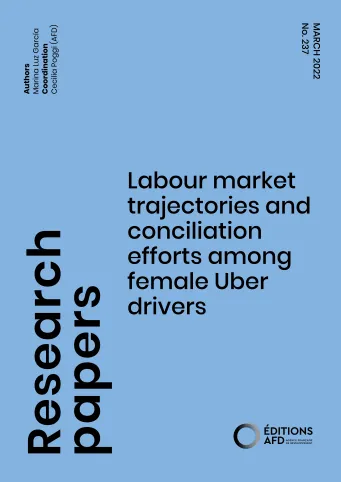Share the page
Labour market trajectories and conciliation efforts among female Uber drivers
Published on

This article examines female Uber drivers’ labour trajectories, paying attention to the way in which gender-based occupational segregation is reproduced and/or challenged in the context of the platform. It also asks how female drivers balance between paid labour and care responsibilities. The analysis focuses on the impacts of the Covid-19 pandemic on platform female drivers work-life balance. The article uses qualitative interviews with Uber female drivers, finding that the entry of female drivers into Uber comes with a significant challenge to the gender division of labour. With respect to the Argentinian context, their participation defies the idea that occupations involving driving or circulating in public spaces are inappropriate for women. However, these women’s conquests finds strong limits. In particular, the daily efforts to reconcile paid work (and its implications in terms of earnings levels and health) together with domestic care activities expose the omnipresent nature of a gender order that still needs to be systematically questioned and confronted.
Useful Information
-
Authors
-
Marina Luz GARCÍA
-
Coordinators
-
Edition
-
237
-
Number of pages
-
24
-
ISSN
-
2492 - 2846
-
Collection
-
Research Papers
